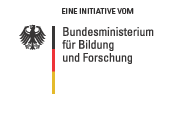Daniel Gerlich: A biologist without blinkers
-
 <ic:message key='Bild vergrößern' />
<ic:message key='Bild vergrößern' />
- Dr. Daniel Gerlich, Institute for Biochemistry at the ETH, Zürich Quelle: Gerlich
20.12.2005 -
Daniel Gerlich knows a fair bit about interdisciplinary research. The young scientist at the Institute for Biochemistry at the Swiss Federal Institute of Technology, Zurich (ETH), is primarily a systems biologist, and he’s made it his mission to combine specific methods from biology and computer science. At present, the 33-year old is working to quantify living cell division processes, which are then modeled in the computer. With the results, he hopes to supply cancer researchers with fundamental information about cell behaviour.
Daniel Gerlich sees himself as a basic researcher. "Without scientists who can scrutinize the essential underlying mechanisms, no fresh ideas or new beginnings can develop", he says. Furthermore, good application-oriented research would not be not possible without basic knowledge to underpin it. Of this, Gerlich is convinced. Thereby, above all, he wants to make quantitative aspects of biology understandable and applicable: "This has been neglected for too long."
Excited by microscopy from the beginning
The shyness experienced by many biologists when confronted with mathematical models is not something that the native of Hesse shares. Quite the opposite. At one time, Gerlich had hoped to study mathematics. "The career prospects did not seem to be very promising back then, so I opted for biology, my second hobby", he remembers. His father’s occupation could well have played a role - Wolfram Gerlich is a virologist and a professor at the University of Gießen. Nevertheless, the medical aspects of his studies were more of a side interest. "I became especially interested in microscopy during my studies", he says, "and the new possibilities for observing living cells with fluorescence methods was exactly my thing."
It soon became clear to the young researcher, however, that experimental work in biology was not going sate his appetite. Already alongside his studies, he had been getting more and more involved in computer science, and after completing his diploma at the University of Freiburg, he decided to focus more on this aspect. Most of all, he was interested in accurately quantifying biological processes. "My background in this field is naturally very helpful as I can measure more precisely than a pure computer scientist where the biological crux is, and what methods I should employ to render it in a computer model", he says.
Cell division in the spotlight
Since his doctoral studies at the German Cancer Research Center (DKFZ) in Heidelberg, Gerlich has been focusing on cell processes, and cell division in particular, in order to be able to better reconstruct, for example, the complex emergence of diseases such as cancer. "Cell division is one of the most fundamental processes, but many molecular operational sequences are still not understood", explains the scientist. With his systems-biological beginnings, Gerlich first wants to understand the function of the proteins and genes, which play a role during cell division. Subsequently, kinetic models will have to be constructed on the computer, which will then simulate the procedures. On a long-term basis, technologies could be developed which make it possible for the medical profession to predict the emergence and development of cancer.
Step for step, Gerlich made his way ever closer to this goal, working first as a post doctorate at the European Molecular Biology Laboratory (EMBL) in Heidelberg before moving to Zurich in 2004. The ETH interested him especially because, alongside the quality of the science, up-and-coming researchers have a great amount of freedom. "I can develop my group totally independently. However, I must provide for third-party funds myself,” explains Gerlich. Finances are no longer a worry, however. Shortly after beginning in Zurich, he was distinguished with the European Young Investigator Award (EURYI award) as one of 25 European ‘next generation’ researchers. The European research price endowed him with 1 million Euros, opening up the space that he needed to apply himself to the research.
Proceeding with thoroughness - even under high pressure
Gerlich regards thoroughness to be the most important quality in science. "I work on a project until I’ve mastered it, even if the pressure to achieve is great", stresses the bioinformatics expert. At the same time, he’s proceeding efficiently. "In interdisciplinary working groups, everyone usually knows their way around their own specific area best of all, and this can limit knowledge gain", he says. But for Gerlich it’s a little simpler: He can sketch both algorithms and pursue a biological experiment in the laboratory. Science is not his only passion, however. Time permitting, he travels outside of Germany and into the mountains, to go hiking or snowboarding. His two children - 3 and 5 years old – also keep the young researcher in check. The weekends are strictly reserved for the family, and only in exceptional cases is he allowed back into the laboratory.
